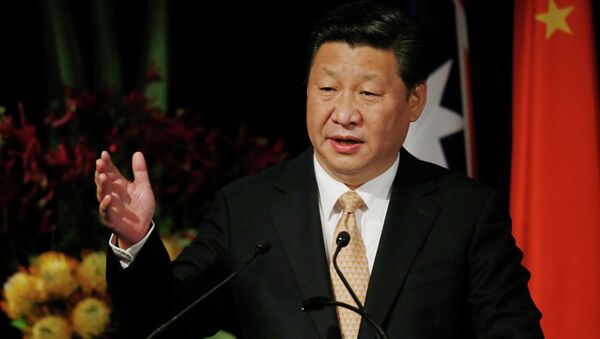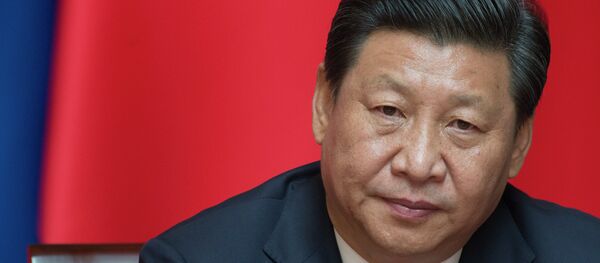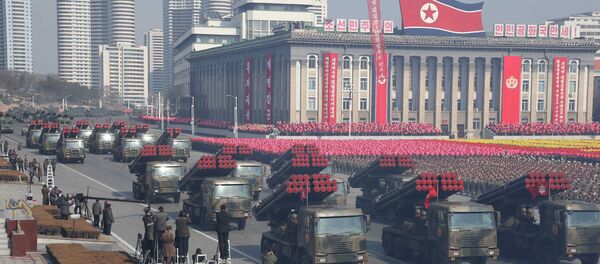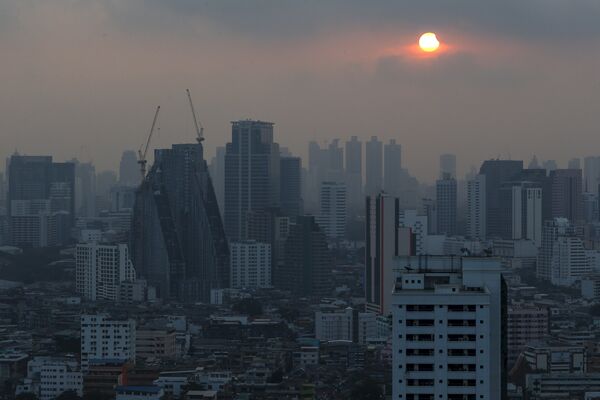"Corruption among local politicians, business leaders, and the gangs they may be associated with provides the perfect vector for foreign interests seeking to influence or destabilize China," Anthony Cartalucci, a Bangkok-based geopolitical researcher and author told Sputnik, commenting on the recent campaign against organized crime launched by the Chinese leadership on January 24.
A document issued by the Chinese Communist Party (CCP) Central Committee and the State Council says that the recent struggle will "combine the anti-corruption and the anti-gang crime campaign." According to the geopolitical researcher, there is a good reason behind this approach.
"Just as the United States and other European nations have done in the Middle East, partnering with the most unscrupulous elements in any targeted nation's society, they are doing likewise all across Asia, including in China," Cartalucci underscored.
He stressed that "not only does this sort of corruption undermine China economically," but "it compromises the quality of its healthcare infrastructure and therefore the safety and well-being of its population."
"Similar inroads have been made by Western banks into China's financial sector with equally troubling implications," Cartalucci remarked.
The Bangkok-based analyst explained that corruption and gangs, as well as business, are "deeply interrelated" across Asia, with local politicians either stemming from gangs or cultivating ties with local criminal elements, or even creating their own gangs.
The crux of the matter is that the amount of unwarranted wealth and influence these corrupt regional political circles are able to accumulate through their activities is used to "disrupt local and sometimes even national functionaries of the state, including infrastructure management, administrative positions, and the police."
"Not only does this present a challenge directly to Beijing's power, but corruption breeds contempt locally — and if widespread enough, nationally," Cartalucci highlighted. "This can be leveraged by both domestic and foreign political opponents seeking to place the blame on Beijing."
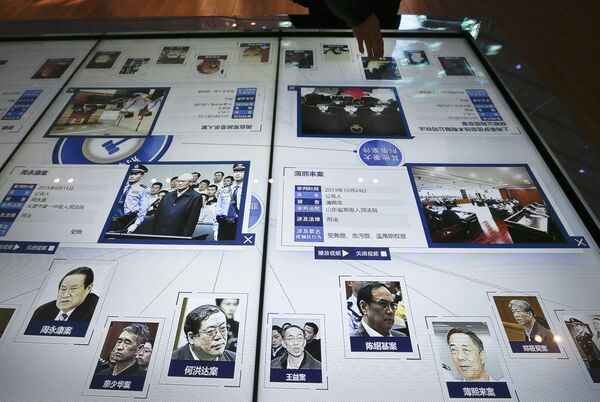
Beijing Seeking to Further Consolidate Its Power
Judging by Chinese President Xi Jinping's anti-graft efforts, it appears that Beijing seeks to further consolidate its power, the analyst noted; he added that it is quite understandable given that China is "an immense nation in terms of geographical area and in terms of population."
Beijing simply "cannot afford to have corruption-driven political power run out of control at a local, regional, or national level — the stability of China as a nation depends on it," the researcher elaborated.
"Historically, Chinese gangs have played significant roles in politics," Cartalucci recalled. "Chiang Kai-shek [the leader of the Republic of China between 1928 and 1975] used them as a political tool and they ultimately helped his rise to power before he ultimately fled to Taiwan."
According to the researcher, some Chinese oligarchs, who seek to oppose or challenge Beijing's power, could be interested in maintaining relations with criminal organizations, just like Chiang Kai-shek.
"If we can imagine the size of China today and the number of rising political and business leaders across the country, coupled with criminal gangs offering to share their unique abilities in exchange for a percentage of the power and wealth these politicians and business leaders accumulate, we can begin understanding the motivations behind Beijing's anti-corruption campaign," the analyst suggested.
Southeast Asia Will Benefit From China's Anti-Gang Campaign
What is more disturbing is that Chinese gangs do have branches in Southeast Asia, Cartalucci stressed.
He recalled that the so-called "Chinese triads" have historically controlled opium production across Southeast Asia.
The triads are secret groups which originate in the 2nd century BC. By the time of the Manchu invasion of China in 17th century, these groups transformed into powerful clandestine criminal organizations.
According to the researcher, "Southeast Asian governments can only benefit from Beijing's crackdown" against organized crime and corruption.
"This means the potential diminishing of powerful organized crime from abroad, leaving local governments the ability to deal with their respective local gangs more directly. Whether local governments choose to eliminate or simply contain and control the illicit activities these China-based gangs monopolized remains to be seen," he elaborated.
Draining the Swamp: Hong Kong Criminal Syndicates
One of the Chinese criminal "hotbeds" is believed to be located in the Hong Kong Special Administrative Region, an autonomous territory south of the mainland Chinese province of Guangdong and a former colony of the British Empire.
"Interestingly enough, the Green Gang who worked so closely with Chiang Kai-shek eventually fled to Hong Kong which was still a territory controlled by the United Kingdom at the time," Cartalucci noted. "Other gangs created in Hong Kong after Chiang Kai-shek fled to Taiwan remain as powerful, global crime syndicates today, involved heavily in drugs, particularly heroin production in Southeast Asia."
However, "the presence of criminal elements who have much to gain by Beijing's misfortunes could prove a useful resource, just as violent organizations across the Middle East and North Africa have aided US foreign policy there," the researcher suggested.
"It's no wonder that Beijing seeks to drain these swamps if not to stem the pestilence already coming out of them, then to prevent them from becoming breeding grounds in the future," he concluded.
The views and opinions expressed by Anthony Cartalucci, Ekaterina Blinova are those of the contributors and do not necessarily reflect those of Sputnik.

